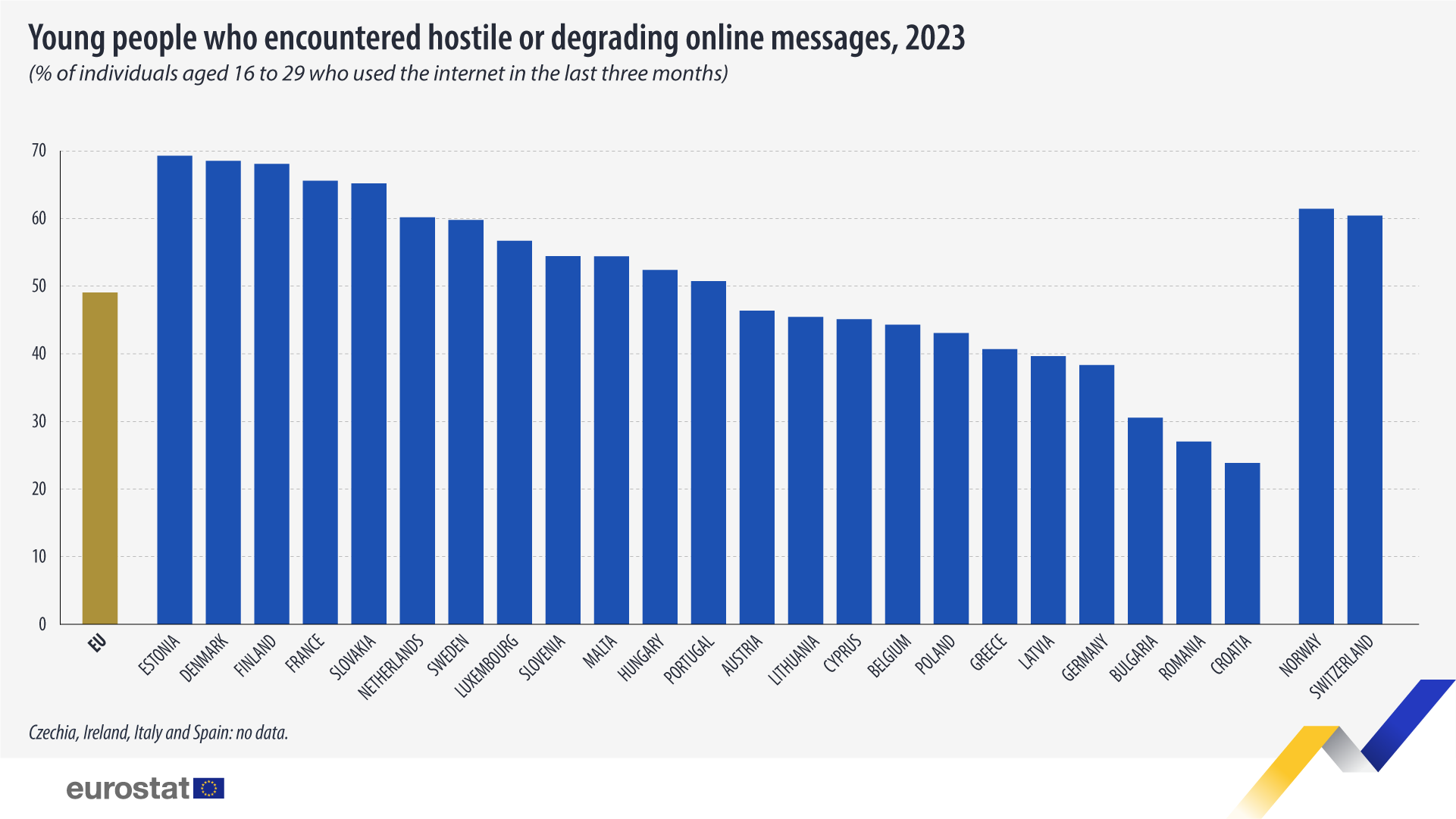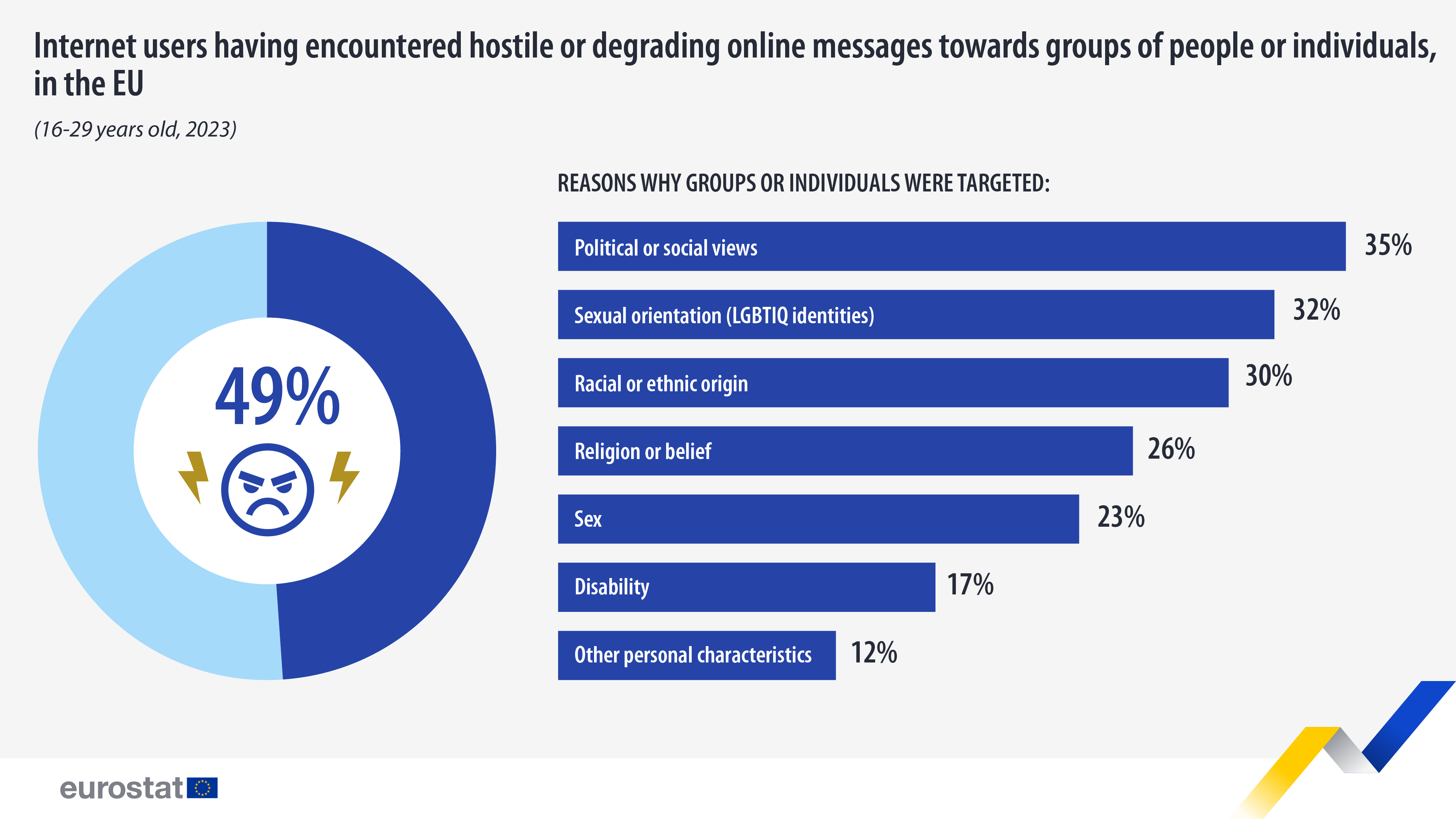50% of young people encounter hostile messages online

In 2023, almost half (49%) of the EU population aged 16 to 29 years old, who used the internet in the past 3 months, reported that they had encountered messages online, which they considered to be hostile or degrading towards groups of people or individuals.
Among the EU countries, 12 out of the 23, with available data, recorded shares above 50%. Estonia reported the highest share with 69%, followed closely by Denmark and Finland (both 68%). The lowest shares were registered in Croatia (24%), Romania (27%) and Bulgaria (31%).
 Source dataset: isoc_ci_hm
Source dataset: isoc_ci_hm
Political or social views biggest reasons for attacks
The category ‘political or social views’ recorded the highest share in the EU among 16-29-year-old internet-users, with 35%, as to why they believed that groups of people or individuals were targeted by hostile or degrading messages online. This category was the largest in Estonia (with 60%), followed by Finland (56%) and Denmark (49%).
The second highest rate in the EU was registered for the group ‘sexual orientation (LGBTIQ identities)’ with 32%. This group had the highest share in Estonia (46%), Slovakia and Portugal (both 44%).
The category ‘racial or ethnic origin’ had the third highest rate at 30%. The highest rates for this category were registered in the Netherlands and Portugal (both 45%) and Estonia (44%).
This news item marks the World Wide Web Day celebrated each year on the 1st of August.

For more information
Methodological notes
Czechia, Ireland, Italy and Spain: no data.
If you have any queries, please visit our contact us page.
